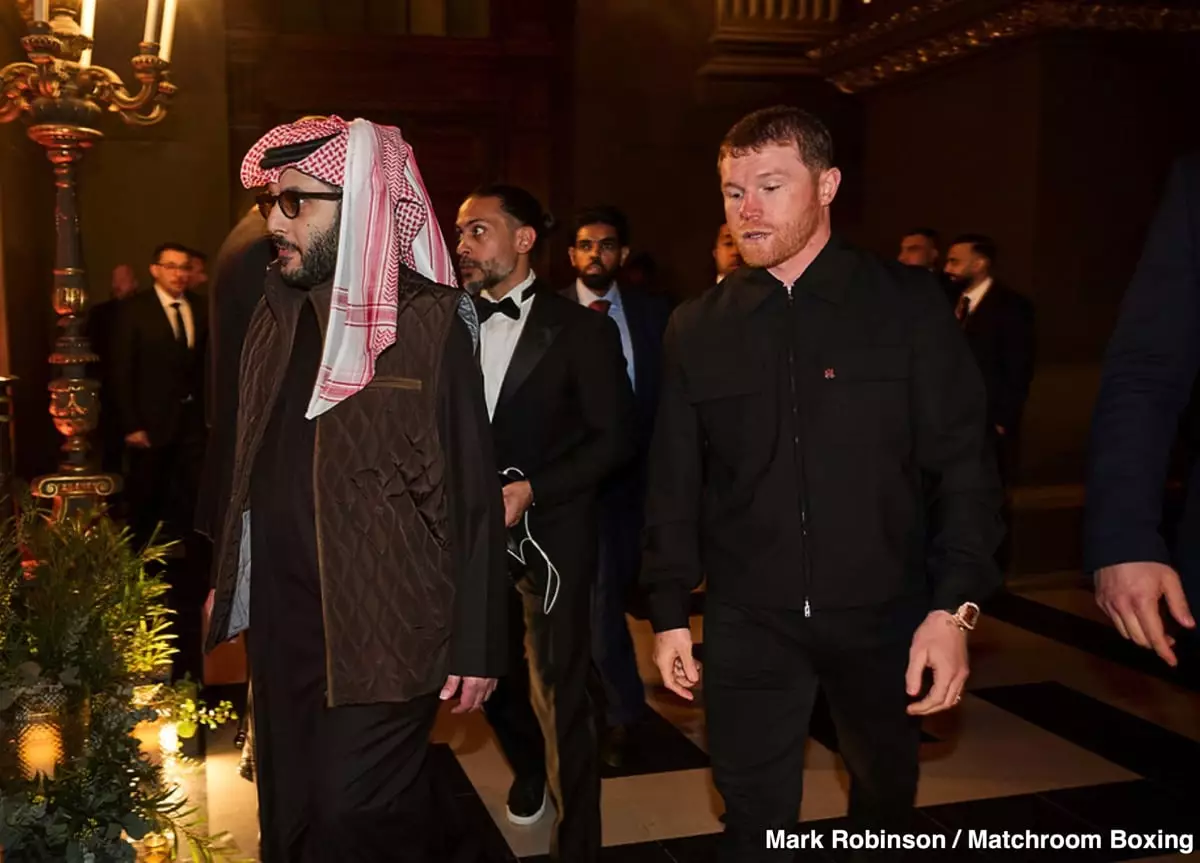In the world of boxing, few names resonate as powerfully as Canelo Alvarez. Positioned to become a titanic financial force, Alvarez’s upcoming fights promise to be not just monumental in the ring, but also groundbreaking in terms of earnings. With figures like Mikey Garcia projecting a staggering $400 million payday on the horizon, one wonders how this transformation will affect not only Alvarez but also the boxing landscape as a whole. As he heads into a historic bout against William Scull on May 3rd, Alvarez’s shift from pursuing titles to pursuing wealth presents a compelling case study of evolving motivations in sports.
Alvarez, with an impressive record of 62 wins, 2 losses, and 2 draws—39 of which are knockouts—has already cemented his legacy as one of the greats. The assertion that he may double his net worth from an estimated $200 million to upwards of $400 million illustrates an evolving narrative in boxing. Traditionally, championship titles dominated the minds of fighters, but Alvarez’s focus appears laser-like on financial security and generational wealth. This shift towards financial considerations raises questions not only about individual aspirations but also about the sport’s future financial health.
Fight for Legacy vs. Fight for Wealth
Mikey Garcia’s commentary brings to light a critical tension between legacy and financial success. For fighters like Alvarez, who have already achieved significant milestones, the spotlight is increasingly on securing wealth rather than titles. Celebrated athletes often grapple with existential queries; should they pursue more titles to solidify their legacy, or should they capitalize on lucrative contracts and sponsorships for financial security? Unlike fighters who are still etching their names in the annals of history, Alvarez seems to have shifted his priorities. He is less concerned about winning belts and more intrigued by the sprawling sums that potentially await him.
This perspective was echoed in Garcia’s assertion that Alvarez now fights primarily for money: “He doesn’t care about the titles anymore; he cares about the money.” While some may view this as a troubling sign for the sport, suggesting that financial incentives overshadow competitive spirit, it also speaks volumes about Alvarez’s strategic mindset. In an industry marked by fierce competition and injury, the notion of financial prudence cannot be overlooked.
The Saudi Influence and Future Opponents
The financial landscape for Alvarez is not merely dictated by his performance but also by the lucrative partnerships he forges, notably with entities such as Saudi Arabia’s boxing promotional circuit. Garcia’s mention of a potential re-negotiation with Riyadh Season suggests opportunities to not only sustain but amplify Alvarez’s financial success. More than just a passive competitor, Alvarez is becoming an architect of his financial future, taking calculated steps to ensure his earnings can fuel generational wealth.
The prospect of facing opponents like Terence Crawford, Dmitry Bivol, and Artur Beterbiev expands Alvarez’s marketability. Each matchup holds promise, not only in terms of ticket sales and pay-per-view buys but also in garnering fresh viewers who are hungry for high-stakes boxing drama. The idea that Alvarez is the marquee attraction, all while facing elite-level competition, positions him as a unique crossroads for both financial acumen and sportsmanship.
Crawford: The Strongest Challenger Yet?
Alvarez’s potential clash against Crawford ignites discussions surrounding risk and reward. Garcia noted that Crawford could pose unique challenges due to his skills, particularly if he intends to “box, box, box to decision.” However, Garcia also emphasized the odds by stating, “I think Canelo is way too strong.” This raises valid queries about the implications of strength, endurance, and skill when considering boxing outcomes.
The upcoming bout may serve as a litmus test for Alvarez’s commitment to his new financial mindset. If he approaches Crawford with the same intensity and business savvy he has displayed, a win could further bolster not only his reputation but also his financial empire. Given the plethora of monetary incentives, it’s an enticing proposition for both fighters.
The trajectory of Alvarez’s career signals a transformation. No longer is he merely fighting for recognition or accolades—he’s strategically investing in his future. This new approach poses not only a significant question of character and ambition but also offers insights into what motivates modern athletes in a financially-driven era. In the arena of boxing, where fights define legacies, Alvarez stands poised to redefine what it means to be both a champion and a savvy entrepreneur.

